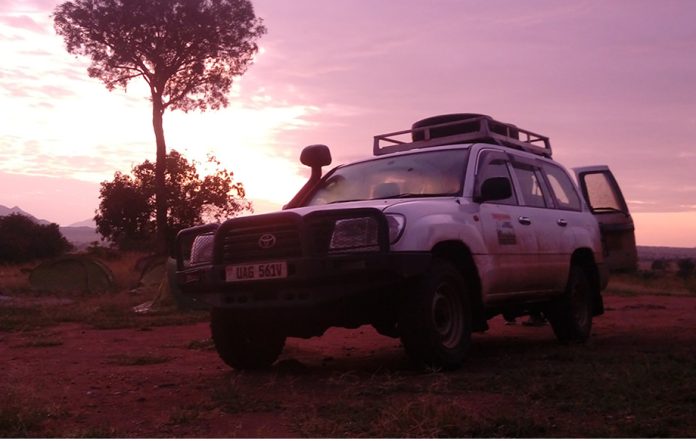Planning for self drive in Africa, below is what you should know to make your planning effective. I remember scouring the internet for all kinds of information and it was so confusing. Enjoy the planning stages and use the time to prepare yourself physically and psychologically and find reputable companies and our holiday was arranged by now my friend Moses who helped us to plan our holiday. Through his company he offers self drive in Rwanda, Uganda, Tanzania and Kenya and our safari was full of fun and hassle free due to the reliable cars that he offers to clients.
Visas
For some countries you will need to apply for a visa in advance, either from the embassy in your own country or in a neighboring African country. Others you’ll be able to get at the point of entry (airport/border).
Money
Visa is much more widely accepted than Master Card or any other card so always take a Visa card with you. Just remember to tell your bank where you are going; otherwise they may block your cards.
If I can’t get local currency, I take a couple of hundred (Dollars/Pounds/Euros etc) in an accessible purse, and change that amount at the airport. Or use the ATM to get out a little bit. Then, I’ll change the rest of my money as I go, just so that I’m not getting out tons of cash at the airport, especially when I’m tired and disoriented.
Safety
Unfortunately, there will always be some places that you will be advised to avoid, for various reasons, but luckily, those places tend to be in the minority.
Health
The World Health Organization is the place to find out about any particular issues that are affecting the areas you might be travelling to. Like for instance, the current Ebola virus outbreak in West Africa. Or you can try The Travel Doctor, another great resource when looking at what precautions you need to take in which countries.
Vaccinations:
Aside from your routine vaccinations (MMR, Polio, Diphtheria, Meningitis etc.) Hepatitis A, Hepatitis B (3 x vaccinations), Tetanus and Typhoid are all highly recommended. A Yellow Fever certificate is required if you are travelling from a country where Yellow Fever is a risk you can find a list here. 3 x Rabies vaccinations are also recommended if you are going to be visiting any remote areas or likely to come into contact with animals. First port of call is to speak to your doctor. They should be able to advise you on what you need and may be able to give you some of your vaccinations for free, or on a cheap prescription. For everything else go to your local travel clinic.
Malaria:
Malaria is rife in many parts of Africa. Taking anti-malarial is a personal choice and some people don’t like them as the side effects can be a bit nasty. I do take anti-malarial, that’s my choice and I’ve never had any trouble with the ones I’ve tried. If you choose to take them, your doctor can advise the best ones for you. Always test them out a few weeks before you go. If you do get side effects, probably best to find out before you leave home. See below in the ‘Staying Healthy’ section for more info on malaria prevention (just remember some malaria tablets make the contraceptive pill ineffective).
Travel Insurance:
Travel insurance is a must. That way, if you need any specialist help whilst you are there, you are covered to get the best care
What to Pack
Clothing:
In terms of what’s appropriate to wear, it varies from country to country. Predominantly Muslim countries tend to be more conservative than other countries, but here are a few guidelines I tend to stick to wherever I travel to avoid any unnecessary attention (or offending anyone):
- Dress modestly, if going to a school, market, village, border crossing etc. Shoulders are usually fine, but keep your knees covered. No miniskirts or hot pants. Knees and shoulders should be covered in Muslim areas, such as Zanzibar.
- You’ll be ok in shorts in some tourist spots i.e.) Victoria Falls. But still, don’t go too short. If in doubt, look at what the locals are wearing. Follow suit.
- At your hotel/round the pool it is usually fine to wear what you want.
- I always carry a scarf with me in case I need to cover my shoulders or head.
- It is rude to show the small of your back in some places so wear longer tops or tie something round your waist.
- Take at least one nicer outfit if you are planning to go to any of the up market hotels, however they don’t usually have strict dress codes.
- Leave your fancy jewelry at home.
- Leggings are good to take. You can wear these under a dress that might be too short otherwise.
- Even though it’s Africa and you don’t expect it to be cold, it DOES get cold at night in many places, so take some warm clothes i.e.) a fleece.
- A good pair of sturdy shoes.
- Take a sports bra for those bumpy roads.
Where to Stay
There are loads of great hostels, hotels, camps and guesthouses in Africa. You can book most of these through places like Hostel bookers or direct by emailing them. I tend to get recommendations from other travelers as I go, and cross reference with Trip advisor and Lonely Planet. I also know loads of great places to stay, so if you want to know any for specific areas, just ask in the comments below! If you’re camping, they’re usually pretty safe (hippos etc. aside), and almost all places have a guard, probably your main concern is in cities and towns.










